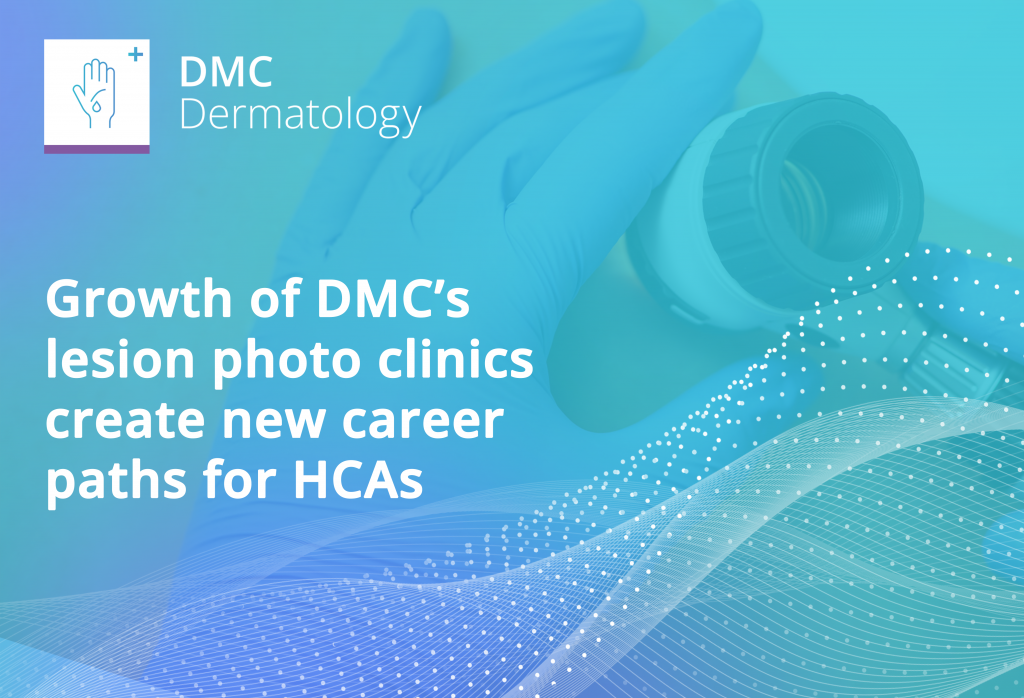
Blog | Growth of DMC’s Lesion Photo Clinics Create New Career Paths for HCAs
In our latest blog, Pritika Gupta, Chief Operating Officer tells us about how investing in innovation and colleague development have always been key priorities. In its latest initiative, DMC is able to combine the two.
Interestingly, we see a strong correlation to DMC’s priorities in innovation and colleague development and the new NHS Mandate, published recently.
The Mandate “We need to enable the health service to deliver and recover in 2 key ways: through supporting innovation and the adoption of the right digital health technologies, and through ensuring the workforce is well supported to continue to deliver the excellent care they provide.”
Skin cancer is the most common cancer in the UK
As waiting lists continue to grow, dermatology services receive more urgent referrals for suspected cancer than any other specialty. About half of the one million dermatology referrals per year are suspected skin cancer two-week wait referrals, and patients diagnosed with melanoma and squamous cell carcinoma make up about 6% of all two-week wait skin referrals source.
The traditional pathway for skin cancer two-week wait referrals requires all patients to attend a secondary care dermatology department for a face-to-face appointment. However, we know that a significant proportion of patients referred have non-relevant skin lesions. In fact a local Trust told me the other day that of the 150 patients they see a week, only 4% are true cancer cases.
So to manage suspected skin cancer two-week wait referrals in a more streamlined way, systems are being told to consider adopting a range of different services to meet local need. This includes the use of teledermatology for a new virtual pathway to significantly reduce the need for patients to attend hospital.
Lesion Photo Clinics (LPC) – how does it work?
DMC’s Lesion Photo Clinic service is provided to patients through a Consultant-led service. Patients can be referred into DMC’s LPC pathway and assessed if suitable. After a face to face appointment, we capture a dermatascopic photograph which is automatically uploaded in the patients’ record. After review by our pool of Consultant Dermatologists, the treatment plan is shared with the patient and GP.
HCAs trained as lesion photo clinic practitioners
Our Healthcare Assistants (HCAs) have always played a key role in patient care, possessing strong communication and organisation skills with a kind and caring attitude. It’s an honour to hear feedback from our HCAs, that they love the team spirit at DMC and they tell us we offer great flexibility, fitting roles around people’s schedule and family life.
Now we are training HCAs to be LPC practitioners, developing their skills over several weeks, working with our Clinical Lead in telederm sessions, shadowing and once fully signed off, are working as LPC practitioners in charge of their own clinics working locally with their laptop, dermatoscope and phone.
Divyank Subhedar joined DMC as an HCA in February 2023 whilst studying for PLABs to become a doctor in the UK and is now working as a LPC practitioner and really enjoying the responsibility and autonomy.
“I’m doing a clinical masters in dermatology and did my undergraduate clinical training in India. DMC is a nice company to work for and the role of a lesion photo clinic practitioner is quite close to a clinical job whereby you get to interact with the patient, take the patient history and carry out the examination.
All the patients I have seen have been very happy with their experience. I’m able to show them the photos I have taken and they feel they have had an intricate examination of the wound or lesion. Every patient is important and although the % of cancer diagnosis is very low, if we feel that any lesion is suspicious we take it very seriously.
As a healthcare professional, one of the primary goals is to provide comfort, support, and information to patients. It’s always a positive sign when a patient leaves an appointment feeling more reassured than when they arrived.”
The right people for the right job
The best thing about being able to develop people from within to new roles, is that colleagues really appreciate the training and career progression which aids staff retention. For patients they are able to see an experienced practitioner quickly and efficiently and importantly receive their diagnosis and treatment much faster. Secondary care is benefiting too, by only seeing patients who need to be seen, helping reduce waiting lists.
We continue to innovate and support our clinicians to provide patient-centered care, developing multidisciplinary teams and employing evidence-based practice.
As the NHS attempts to move on from one of the most intense winters ever and strives to get through six months of industrial action, DMC’s focus is on helping systems reduce their waiting lists. There has never been a more important time to innovate and look after our teams.

